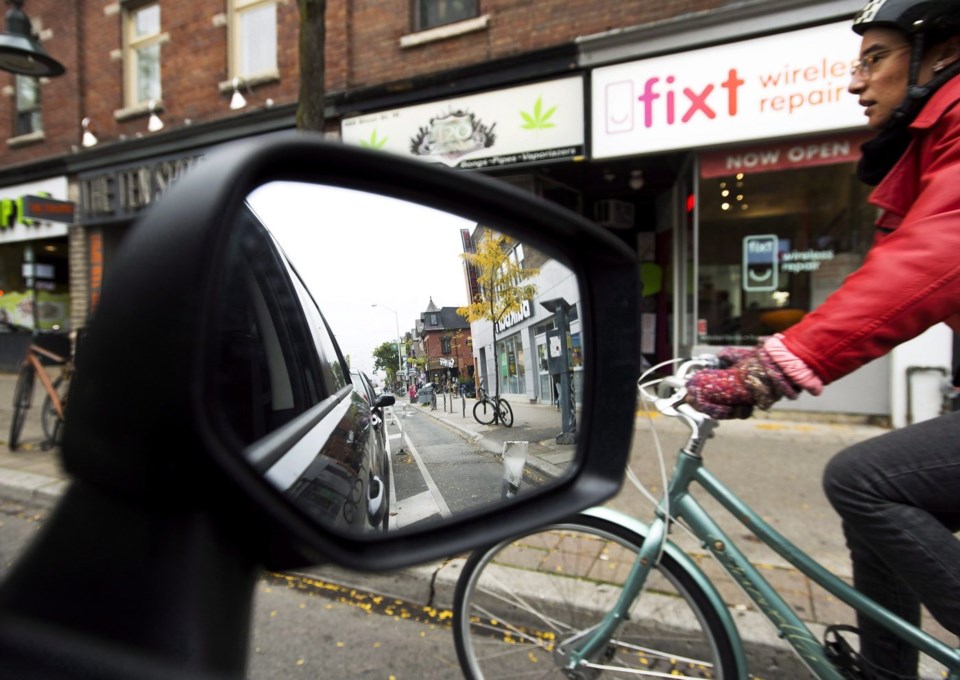TORONTO — Upcoming legislation that would require cities to get provincial approval for some bike lanes is a "significant overreach" of power, Ontario municipalities say, while Premier Doug Ford vowed Thursday to go even further and remove existing lanes.
None of the 444 members of the Association of Municipalities of Ontario were consulted or shown evidence the province is using to justify its proposed veto power over new bike lanes that would remove a lane for cars, the association wrote in a statement.
"Bicycle lanes are an essential element of urban transportation planning and road safety," the association said.
"Requiring provincial approval would be a significant overreach into municipal jurisdiction."
Ford's government is set to table the bike lane legislation next week as part of a suite of measures designed to tackle gridlock. Transportation Minister Prabmeet Sarkaria said earlier this week the legislation is meant for future bike lanes.
On Thursday, Ford contradicted his minister.
"It isn't enough to keep an eye on future bike lanes," Ford said in a speech at the Empire Club of Canada.
"We need to, and will, remove and replace existing bike lanes on primary roads that are bringing traffic in our cities to an absolute standstill."
Ford has previously complained about bike lanes on Bloor Street West creating gridlock on a road that is about a 10-minute drive from his home in Toronto's west end.
"It's an absolute disaster," Ford said last month.
The association said municipalities develop transportation plans based on local knowledge and community input. They are also balancing car traffic flow with active transportation and take into consideration health and environmental concerns.
"It is unclear how the Ministry of Transportation will be in a better position than municipalities to make decisions about local transportation matters," the association said.
"Rather than micromanaging bike lanes, the Ministry of Transportation could focus on accelerating its own approval processes to help support new housing."
Sarkaria said Thursday that cyclist safety is a priority for the government. He said they are "more than happy" to work with cities on the issue.
"As we work with the city to approve those future bike lanes, we'll take into consideration ... elements of safety and how that can be done in a way that supports the future introduction of lanes where they do require a removal of traffic," Sarkaria said.
He also said communities can still implement bike lanes that do not remove a lane of traffic.
This report by The Canadian Press was first published Oct. 17, 2024.
Liam Casey, The Canadian Press




